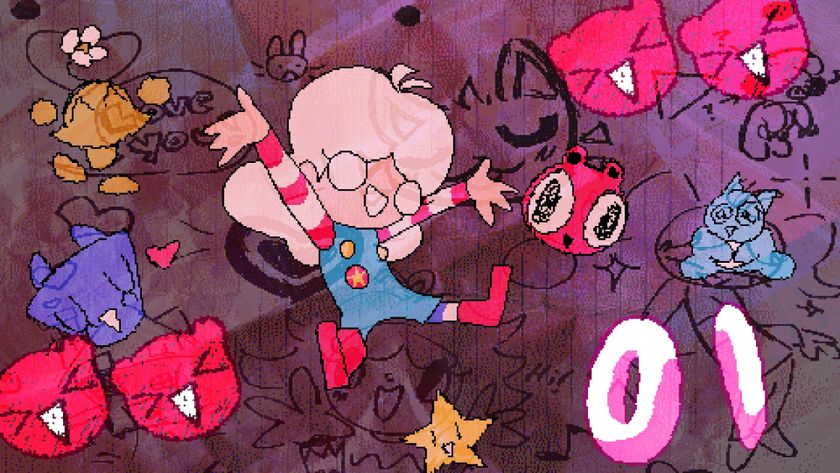Meet Trent Oster, the bloke who launched Neverwinter Nights twice
"It took a couple of games to learn moderation.”
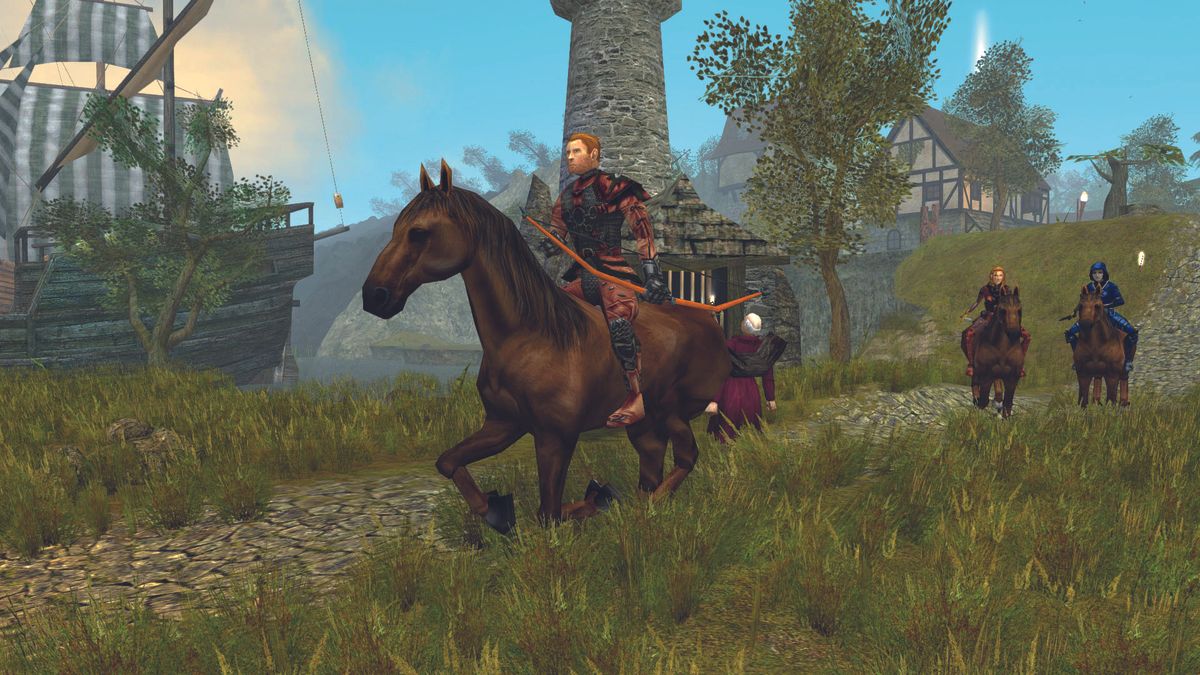
Back in the ’90s, everybody told Bioware that the western RPG was dead. “That’s the best news you can hear,” co-founder Trent Oster laughs. “That means that there is absolutely nobody looking at your market space, and you can roll in and do fun things.”
It also meant, however, that the studio was short on good examples to follow. Bioware’s model for a great D&D game, Pool of Radiance, had come out in the late ’80s and looked like Teletext. By 1995, the studio was instead playing Warcraft, the pioneering real-time strategy game. That’s why, when you click on a Baldur’s Gate party member, you often hear a funny, fourth-wall breaking quip in the style of early Blizzard—a “Yes, oh omnipresent authority figure?” or “Stop touching me!”
Warcraft is also why Baldur’s Gate has real-time combat. After Bioware’s game became a hit, almost all its competitors followed suit, and today Warcraft’s influence on the RPG is so pervasive as to be invisible.
“Warcraft was held up on an altar,” Oster says. “Worshipped for taking the concept of a multiplayer battle game and building the best possible interface you could do.”
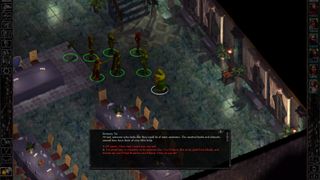
Ironically, by the time Bioware had finished Baldur’s Gate, Oster hated its interface. He’d spent months testing the multiplayer component, and grown tired of all the thick, thunking buttons. “It was so much grey stone on the screen, and it was so many clicks,” he says. “Unnecessary clicks build a rage in me that you cannot comprehend.”
When Oster was handed Neverwinter Nights to direct, he immediately threw out all the grey stone in favour of a minimalist, MMO-style interface. Even the inventory was transparent. The benefit was clear, if you’ll excuse the pun: players could always see an orc coming. But Bioware lost some of Baldur’s Gate’s weighty, earthen charm in the process. “I called it the Bioware pendulum,” Oster says. “We never made the same mistake twice. We made the polar opposite mistake. We’d do something equally atrocious in the opposite direction. It took a couple of games to learn moderation.”
Ever Winter
Oster stayed on until Dragon Age: Origins. Bioware might have swung back to Baldur’s Gate’s style and aesthetic, but its culture had fundamentally changed—from a “mom and pop shop” to a big company that ultimately answered to a private equity firm.
The biggest gaming news, reviews and hardware deals
Keep up to date with the most important stories and the best deals, as picked by the PC Gamer team.
“Greg [Zeschuk] and Ray [Muzyka] kicked into overdrive mode trying to make their bosses happy,” Oster recalls. “Under Electronic Arts, that just became even more prevalent. There were priorities that EA was giving Greg and Ray that wasn’t getting passed to the rest of the studio. As a result, it seemed to a lot of the senior people that we were making dumb decisions. Because we weren’t seeing the entire picture of what was going on.”
Oster left, and his first act as an independent was to buy an iPhone “because EA would provide phones, but they wouldn’t provide smartphones”. A year later, the iPad launched, and Oster’s interface sense was tingling again. “My thought was, ‘Wow, Baldur’s Gate would be amazing on this. I wonder where Baldur’s Gate is at?’”
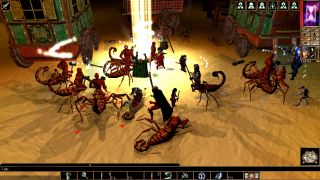
Over the ensuing decade, Oster has helmed the modernisation of Bioware’s Infinity Engine—an effort which has ultimately given us enhanced editions of Baldur’s Gate, Icewind Dale, and Planescape: Torment on Steam. Once done, Oster returned to Neverwinter Nights too. He was even able to fund the completion of Darkness over Daggerford, an official expansion campaign that was cancelled without warning by Atari back in 2006.
Many game developers decide that it’s best not to look back on their previous games throughout their career. It’s a wise coping strategy in an incredibly turbulent industry, where it’s sadly common to lose years of work to cancelled or compromised projects. Oster, though, can’t seem to pull himself away from the early games of his career.
“It’s like an abusive relationship with Neverwinter Nights,” he says. “I still love it, but every time I look at it, it hurts me. I see it for what I wanted to do, not for what it does. It’s always missing something in my eyes. But when I see what the community’s done with it, and what fans have been able to extend it to do, I can see past some of the shortfalls that drive me up the wall.”
Jeremy Peel is an award-nominated freelance journalist who has been writing and editing for PC Gamer over the past several years. His greatest success during that period was a pandemic article called "Every type of Fall Guy, classified", which kept the lights on at PCG for at least a week. He’s rested on his laurels ever since, indulging his love for ultra-deep, story-driven simulations by submitting monthly interviews with the designers behind Fallout, Dishonored and Deus Ex. He's also written columns on the likes of Jalopy, the ramshackle car game. You can find him on Patreon as The Peel Perspective.
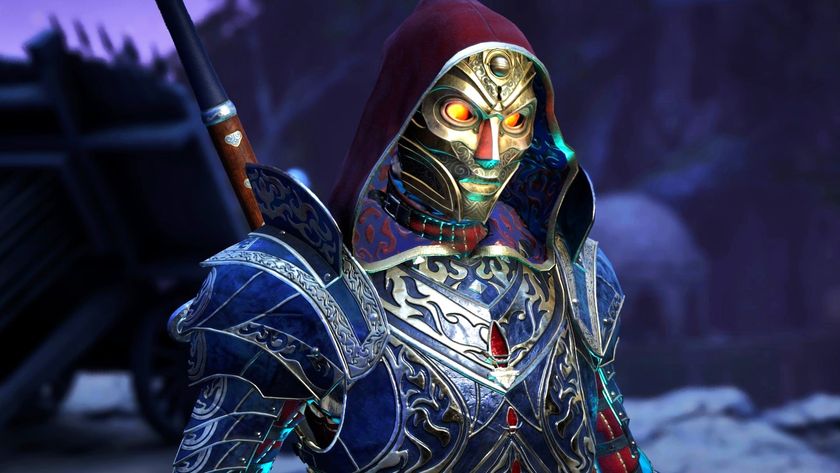
There's hunger at Obsidian for a Pillars of Eternity Tactics game after Avowed, says studio design director Josh Sawyer, but it doesn't sound like it'd get that Baldur's Gate 3-size budget he was fantasizing about
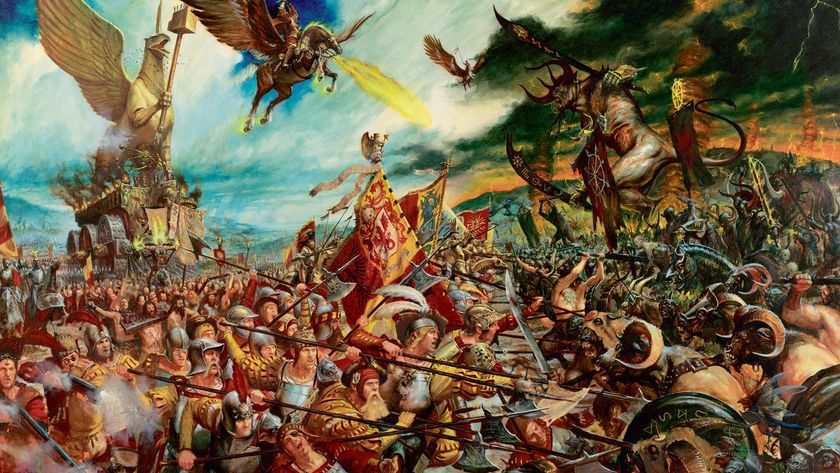
Cubicle 7 explains why its fantasy RPG based on Warhammer: The Old World will be a separate game and not a line of supplements for its existing Warhammer fantasy RPG, which is called Warhammer Fantasy Role-Play
Most Popular






